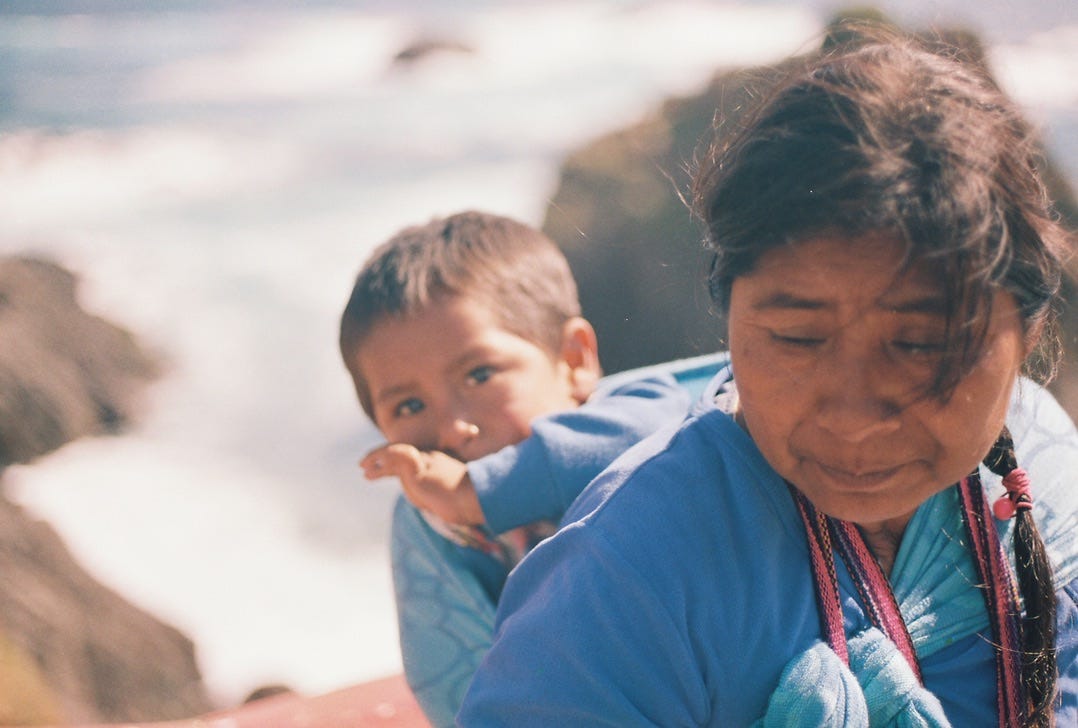I’ve got what John Bowlby would call an anxious attachment. Through sin and circumstance, my primary disposition in relationships of all forms and functions is a base level fear that I’ll be left in the cold, be seen as too much to handle, or someone will realise my inadequacies and leave me.
In my younger years, this led to self-destructive behaviours. I would fulfil a self-imposed prophecy of being a basket case or a black sheep. “People will leave me anyway, so I’ll beat them to the punch.”
In my workplace, friendships, writing, and hobbies, fear has been a dormant fuel that has led to curating or isolating.
And I’m no psychologist, but I know enough to be dangerous.
Steve Jobs, Elon Musk, and Kanye West
In much of childhood psychology, the early years of our lives are of dire importance. Here we long for “mutual synchronicity” with our mothers. Meaning it’s not only the face of our mother that we long for, but for a reciprocal and dynamic interaction.
Put differently, infants need dynamic face-to-face presence. To laugh with to cry, to love and to hold. To have their emotional hunger nurtured.
Many of us, for various reasons, didn’t receive this, and we navigate our lives with a deep longing for attunement. When this goes awry, our inner being walks with a sort of limp.
Take Steve Jobs, for example. A brilliant innovator and creator who was a tyrant and bully to work for. In Steve Jobs, the award-winning biographer Walter Isaacson tells the story of Steve Jobs’ early childhood and Jobs’ adoption.
In various interviews, friends and family make the correlation that Jobs always felt fundamentally flawed and rejected because his birth parents, in a very literal sense, abandoned him.
Now, Issacson is no psychologist, but his findings are interesting.
Last year, he published another book on a tech giant, Elon Musk. In Musk's case, he experienced horrendous bullying on the schoolyard as a child growing up in South Africa and from his father.
But it was Mama Musk who always believed, perhaps a little too much, that Musk was special and gifted.
Or take the case of Kanye West. His best friend and closest confidant was his mother, and many journalists make the case that since she passed, West never recovered (sadly, we see this brokenness splayed all over the internet).
The list goes on.
Our mothers form us, champion us, and because they are also finite, can leave unintentional wounds.
In my case, my mother was imperfectly benevolent. She would sing to me “you are my sunshine, my only sunshine,” which still reminds me who I am and has always been the most generous woman I know.
She’s led the way in our family in education, faith, and prayer – as one rapper said, “I am the thesis of my mother’s prayers.”
Yet we’ve had fights and arguments, and times when I felt overlooked and that my problems were too much to handle.
The beautiful and sad truth about our brains and lives is that two things can exist at once – my mother has loved me more and possibly wounded me more than I could ever imagine.
The same is true of fathers and siblings. Yet there is one that heals this anxious part of me.
A Psalm of Attunement
Throughout Scripture, God is often referred to as Father or in the masculine tense. But in these instances, we see the writers refer to God’s maternal heart and essence; here, our ears should perk up.
I think of Isaiah 66:13:
As a mother comforts her child, so will I [God] comfort you; and you will be comforted over Jerusalem.
Or Jesus echoing Psalms of lament in Matthew 23:37:
how often I have longed to gather your children together, as a hen gathers her chicks under her wings, and you were not willing.
I have no idea how many prayers of lament my mother has cried, echoing God’s own for a wayward son; how countless times she too comforted my siblings and me.
Then, a personal favourite I’ve been carrying around and recalling in moments when my anxious heart kicks up.
Psalm 131:
I’ve kept my feet on the ground,
I’ve cultivated a quiet heart.
Like a baby content in its mother’s arms,
My soul is a baby content.
I’m reminded that my fear and anxieties are no match for the furiously faithful and steady love of God. Like a mother bear protecting it’s cubs, God’s faithful love carries us home. God woos us and holds us, weans us, and comforts us.
As one commentator notes:
“The young child rests peacefully, assured that her life has been cared for and will continue to be so… as the young child trusted that her mother was the source of life, so too the psalmist trusts that his life is being cared for by God1.”
And the coolest truth is the Psalm does not only extend to my needs and anxieties. The Psalmist shows me that this love is cosmic:
Wait, Israel, for God. Wait with hope.
Hope now, hope always!
As our anxious hearts find peace, so shall our world.
For those of us who have not had safe or loving mothers, God’s community and faithfulness can gift to us women of refuge. As I’ve lived as an expat in a country not my own, it’s been God’s people who have healed and loved my heart back from its anxious paths.
Dennis Tucker & Jaime A. Grant, The NIV Application Commentary: Psalms book 2, (Grand Rapids: Zondervan, 2018).



